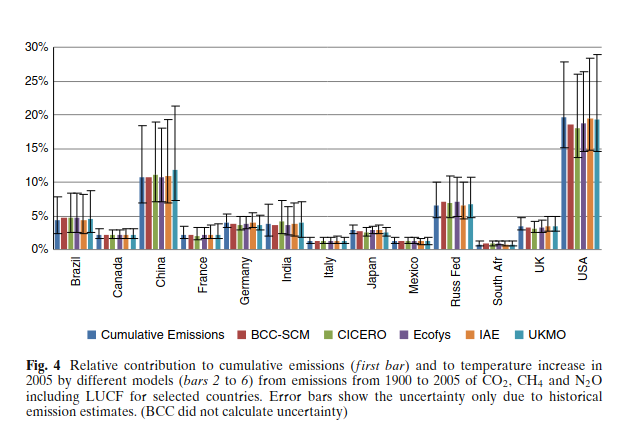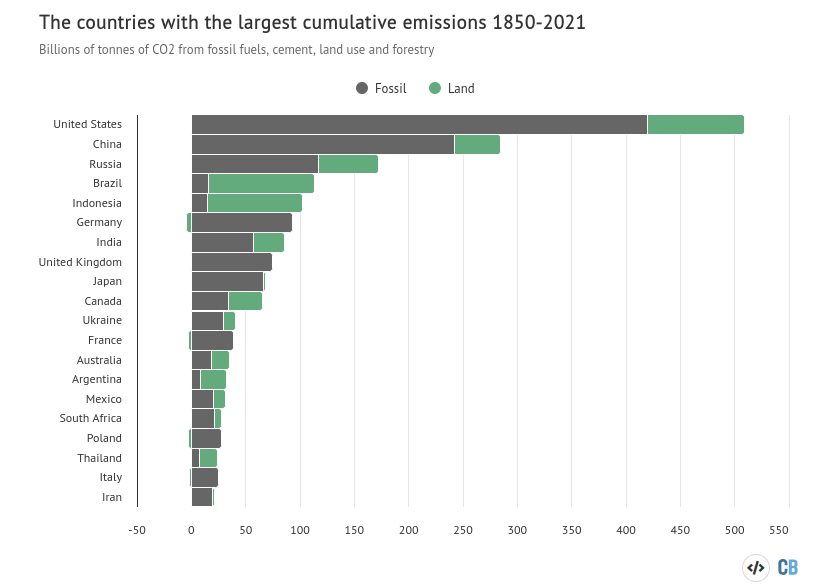Most of the historic greenhouse gases responsible for global warming have been released by industrially developed western states, the US in particular. But it is poorer ex-colonial nations that are having to bear the brunt of climate disasters. This is a major legacy of colonialism and imperialism, in which western countries extracted huge amounts of wealth from the South.
This history is behind the most persistent conflict in all international climate negotiations. Countries of the South have long demanded that the North provide the finance for them to respond to the climate induced chaos and move their economies to clean energy. They call for the North to provide the major amounts of finance required to combat climate change is almost universal. Leaders of the wealthy countries stubbornly resist any moves to redistribute accumulated wealth.
How this demand is framed is crucial for socialists and climate activists. For many activists and politicians, the analysis goes little further than a conflict between countries, with rich countries unwilling to pay for historic wrongs inflicted on the South. Some activists describe western lifestyles being dependent on exploitation of poor countries.
But it is mistaken to blame everyone living in wealthy countries for the climate crisis. The responsibility for the plight of the poor in the ex-colonial world lies squarely with colonialism and imperialism. During the colonial era, western states extracted wealth from their colonies through military force and the use of cheap labor. After colonies became independent, exploitation continued through the domination of the world’s economy by western corporations and a set of trade and financial rules that favored the wealthy countries. The world economy today is dominated by large transnational corporations, headquartered in wealthy countries, with productive enterprises located in low wage ex-colonial countries.
Historic emissions
Especially in the late 1900s and the first half of the 20th century, it was the wealthy western economies that released nearly all the greenhouse gases that are responsible for global warming. The US in particular, is responsible for a huge proportion of these greenhouse gases.
But examination of historic emissions from 1900 until 2005 show that several non-western countries have become major contributors. According to the Lawrence Berkeley National Laboratory, China is the second largest greenhouse gas emitter, Russia the third, with Brazil fourth and India about tie fifth together with Germany.

A similar pattern is shown in a study from CarbonBrief looking at CO2 emissions up to 2021, the main difference being the high level of CO2 emissions from Indonesia.

Clearly there is not a direct relationship between colonialism, imperialism and greenhouse gas emissions.
While these facts are important for climate negotiations, it is the politics of the climate crisis that must inform ecosocialist demands. Socialism promises a better future for working people in the west as well as workers, peasants, farmers and indigenous communities in the ex-colonial countries. Any strategy to combat climate change must focus on building an alliance between all these groups.
Root cause of the crisis
The root causes of the climate crisis are not selfish individuals or the citizens of the wealthy west. This is a crisis of a system dominated by capitalist production, and even the recalcitrant political leaders are little more than agents of the system.
In the same way, the leaders of the poorer countries, who are at the forefront of calls for more finance from the wealthy, are not the true representatives of the citizens of their countries. The governing elites of poor countries are significant beneficiaries of the global economy while their citizens remain impoverished.
In Marx’s time, the world could be divided primarily along the lines of the wealthy west and the colonial world. This is clearly no longer the case. China has become the second largest global economy, and many ex-colonies are homes to large corporations that compete on a global scale.
The COP climate negotiation forum, like the United Nations, is a setting in which competing states seek advantage for their corporations and industries. Among the wealthy west and countries of the global south with their own corporations and industries, alliances are formed on the basis of their narrow interests. And what unites almost all of the non-western countries is the demand for climate finance from the west – for green infrastructure, climate adaptation and loss and damage.
Sovereignty
For two centuries after the American War of Independence in the 1770s, anti-colonial struggles took place in the Spanish, Portuguese, British, French and other colonies. At the core of these battles were the rights of the local people and the assertion of national sovereignty, opposing the rule of the colonial powers.
The struggle for sovereignty led to the attainment of political independence from the colonizing countries in almost all cases, significantly reducing the powers of the colonizers. In the larger ex-colonies such as Brazil, India, Argentina and Indonesia, locally owned finance and industry have established themselves to compete side by side with western companies. And of course, oil rich nations have been able to build their own locally based oil companies. But decolonization has failed to challenge the supremacy of capitalism. National sovereignty has mainly led to a wider range of countries that are home to transnational corporations.
Wealth and power
In the context of the COP talks, there is a fictional understanding that nations are equal participants in the negotiations. But this fiction breaks down completely once the subject turns to finance. Wealth means power, and the wealthy countries are making sure that their financial commitments to poorer countries remain minimal.
It is blindingly obvious that poorer countries will never be able to fund a switch to renewable energy, or cope with the results of worsening climate disasters. There is a need for a huge redistribution of wealth from rich to poor.
Corruption and transparency
But the simple transfer of money from wealthy to poorer states is not a solution. The international anti-corruption NGO, Transparency International, has examined the Just Energy Transition Partnerships program (JETP). These partnerships are finance agreements among specific countries to provide mainly loan finance to middle income countries. Transparency International’s report highlights past corruption in the three countries reviewed (South Africa, Indonesia and Vietnam). The report notes a lack of transparency in the planning of the JETP projects. It warns that because of the absence of input from local and international anti-corruption bodies in the drawing up of the national plans, there are significant corruption risks.
Of course, corruption is present in all countries. But misuse of climate related funding will be a gift to the far right, and will damage the fight against climate change.
Socialists advocate for democratic participation in all levels of the economy, with real oversight of state spending. But the minimum demand for any international climate funding that crosses national borders must be for total transparency and the inclusion of serious anti-corruption monitoring of spending. Participation of local communities and international monitoring groups will be essential.